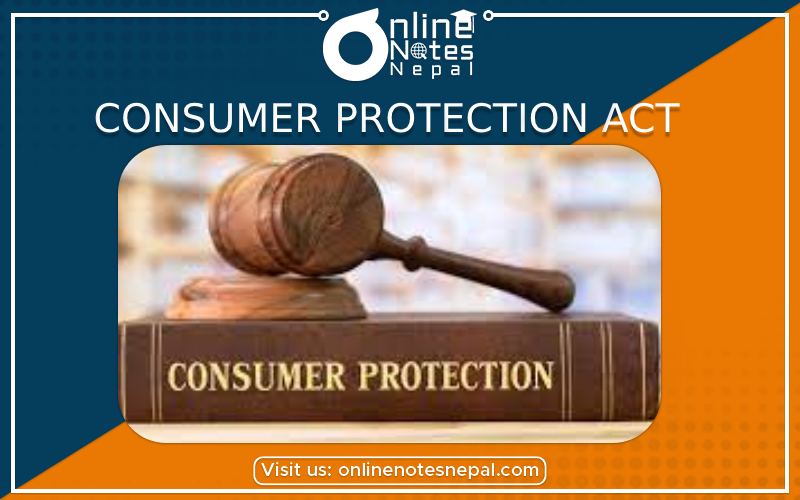Published by: Anu Poudeli
Published date: 07 Aug 2023

The Consumer Protection Act (CPA) is a key piece of legislation implemented by governments around the world to protect consumers' rights and interests. Its goal is to protect consumers from unfair trade practices, to safeguard their safety, to supply them with correct information, and to provide an effective procedure for resolving disputes. While particular rules vary by jurisdiction, the following are some major elements often found in consumer protection acts:
1.Consumer Rights: Typically, the CPA defines consumers' fundamental rights, which may include the right to safety, the right to be informed, the right to choose, the right to be heard, the right to seek remedy, and the right to consumer education.
2.Unfair commercial activities: Under the act, businesses are prohibited from engaging in deceptive activities, false advertising, misleading information, and unfair commercial practices that may mislead or harm consumers.
3.Product Safety: According to the CPA, products and services must meet certain safety requirements and should not pose unjustifiable risks to the health or property of consumers.
4.Product Liability: Under the legislation, producers, sellers, and service providers are held accountable for any damage or harm caused to consumers by defective products or services.
5.Consumer Education: The legislation encourages the promotion of consumer education in order to provide customers with information about their rights, obligations, and how to make educated decisions.
6.Consumer Redressal: The CPA usually includes a consumer redressal structure, such as consumer courts or tribunals, where consumers can seek resolution and compensation for complaints about unfair conduct.
7.E-commerce Regulations: In the digital age, consumer protection statutes frequently incorporate rules particular to e-commerce platforms, assuring transparent transactions, information disclosure, and protection against fraudulent online activities.
8.Unfair Contract conditions: Under the legislation, certain contract conditions may be declared void if they are deemed unfair or prejudiced against businesses, prohibiting consumers from making fully informed decisions.
9.Price Regulation: Some consumer protection statutes may handle price gouging and pricing discrimination, ensuring that consumers are not exploited in times of emergency or arbitrarily.
10.Consumer Advocacy and Enforcement: The act may appoint a consumer protection agency or authority to enforce the provisions and advocate for consumer interests.
11.Alternative Dispute Resolution: To expedite the resolution of consumer complaints, consumer protection acts may promote alternative dispute resolution procedures such as mediation and arbitration.
It is crucial to understand that the Consumer Protection Act differs from country to country. If you are looking for information about a specific country's Consumer Protection Act, I recommend consulting the legislation in that jurisdiction.